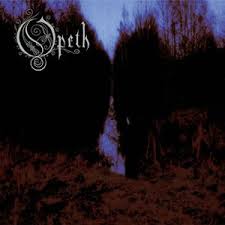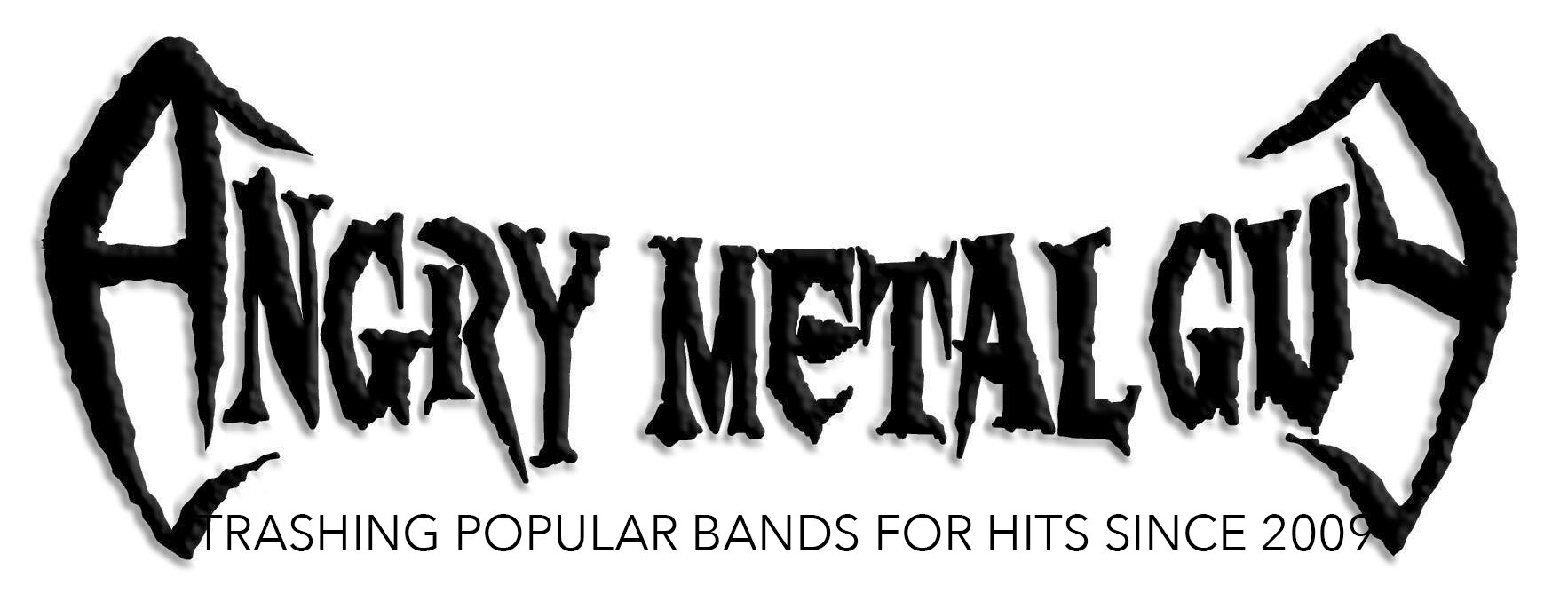 Getting my license to gush over the mighty Opeth on a Yer Metal is Olde piece feels a little surreal. It reminds me of Australian speed skater Steven Bradbury at the 2002 Winter Olympics, and his unlikely, comical victory to snatch the gold medal. I’m an avid supporter of the Swedish legends from way back, but I assumed seniority from noted fanboys Angry Metal Guy and El Cuervo would trump my position. However, neither felt quite strongly enough to assume the position. So I get the privilege of gripping the baton and examining the legacy of Opeth’s pivotal third album, My Arms, Your Hearse. There’s raging debate about which Opeth album sits on the pedestal as their greatest achievement. I’m not here to proclaim My Arms, Your Hearse as their best album, but it holds a special place in my heart and is a fundamental stepping stone towards the band’s momentous career peak. Fittingly it was the first Opeth album I heard around the turn of the millennium, setting me on course for a hell of a ride across the band’s decorated career.
Getting my license to gush over the mighty Opeth on a Yer Metal is Olde piece feels a little surreal. It reminds me of Australian speed skater Steven Bradbury at the 2002 Winter Olympics, and his unlikely, comical victory to snatch the gold medal. I’m an avid supporter of the Swedish legends from way back, but I assumed seniority from noted fanboys Angry Metal Guy and El Cuervo would trump my position. However, neither felt quite strongly enough to assume the position. So I get the privilege of gripping the baton and examining the legacy of Opeth’s pivotal third album, My Arms, Your Hearse. There’s raging debate about which Opeth album sits on the pedestal as their greatest achievement. I’m not here to proclaim My Arms, Your Hearse as their best album, but it holds a special place in my heart and is a fundamental stepping stone towards the band’s momentous career peak. Fittingly it was the first Opeth album I heard around the turn of the millennium, setting me on course for a hell of a ride across the band’s decorated career.
Some adamantly state Orchid and Morningrise are the only albums that matter in the Opeth discography. However, this close-minded view is rather difficult to fathom. And though I hold both albums in high regard, the transition towards greatness began to truly flourish on My Arms, Your Hearse. It’s a cold, ugly blackened beast of prog-death goodness, enriched with gorgeous moments of melancholic beauty, bleak acoustic turns, and brutal bouts of aggression. The album effortlessly bridged the gap between their hugely promising, raw and blackened roots, with the sophisticated compositions and magic song-writing that defined subsequent releases. One of my reflective listening sessions took place on a lakeside bush walk in my coastal hometown on an overcast, drizzly day. This proved the perfect environment to deeply reconnect with the album’s icy, melancholic atmosphere and timeless songs, reminding me of its brilliance and impact nearly 20 years after I first heard it.
“April Ethereal” immediately establishes itself as one of Opeth’s finest early phase compositions, a towering, progressive death behemoth that set a high bar for the rest of the album. The beauty and the beast shifts on the album are sublime; the mellower acoustic breaks intertwined in a more seamless fashion amidst the heavier backdrop. And the song-writing never dips below a very high standard, with the classic “Demon of the Fall” sitting comfortably alongside understated ballad “Credence,” while confident and ambitious progressive death cuts, “When” and “The Amen Corner,” carved their own unique place in Opeth’s repertoire. Although still long and epic in design, the song lengths were generally trimmed compared to the first two albums, making for a leaner, more concise experience. My Arms, Your Hearse also introduced what would become the classic Opeth line-up, with the addition of drummer Martin Lopez and bassist Martin Méndez. Unfortunately, the latter couldn’t contribute directly to the recording due to time constraints, with frontman Mikael Åkerfeldt handling bass duties. It also marked Opeth’s maiden concept album, while the improved, though muddied production, courtesy of Fredrik Nordström, elevated the album on a sonic level.

My Arms, Your Hearse was greatly enhanced in nearly all respects from its already impressive predecessors. Opeth’s sound continued to evolve, the compositions flowed with smoother cohesion, the musicianship shifted up a couple of gears, and the song-writing was increasingly fluid and adventurous, coming across as heavier, more memorable, melodic and intense than ever before. Åkerfeldt’s performance exemplified this, his leads were mournful and melodic, the riffs punchy, brutal and endlessly headbangable. His vocals, growls and cleans, were also an improved facet, the former more guttural and powerful, the latter still a tad underdeveloped but more confident and assured, loaded with emotion. Peter Lindgren’s rhythm work formed a crucial component to the dual guitar mastery, while Lopez topped things off with a complex and varied drumming performance, his supreme skill-set a key ingredient during Opeth’s evolution.
My Arms, Your Hearse remains a pivotal snapshot in Opeth’s career, a ’90s classic and transitional album, forming the beginning of what I consider one of the greatest creative periods and album streaks in extreme metal history, up until and including, 2005’s monumental Ghost Reveries. The album’s rougher, unrefined edges serve an inviting and endearing contrast to their more polished later efforts. But in the end it’s the songs themselves and their enduring quality that overcomes any minor deficiencies and has My Arms, Your Hearse ranking high behind the unforgettable trilogy of Still Life, Blackwater Park and Ghost Reveries as my favorite Opethian masterpiece.

















